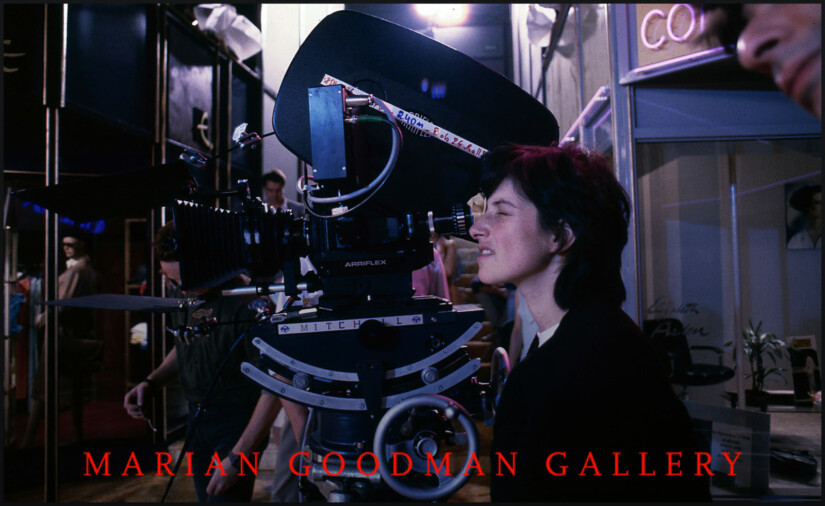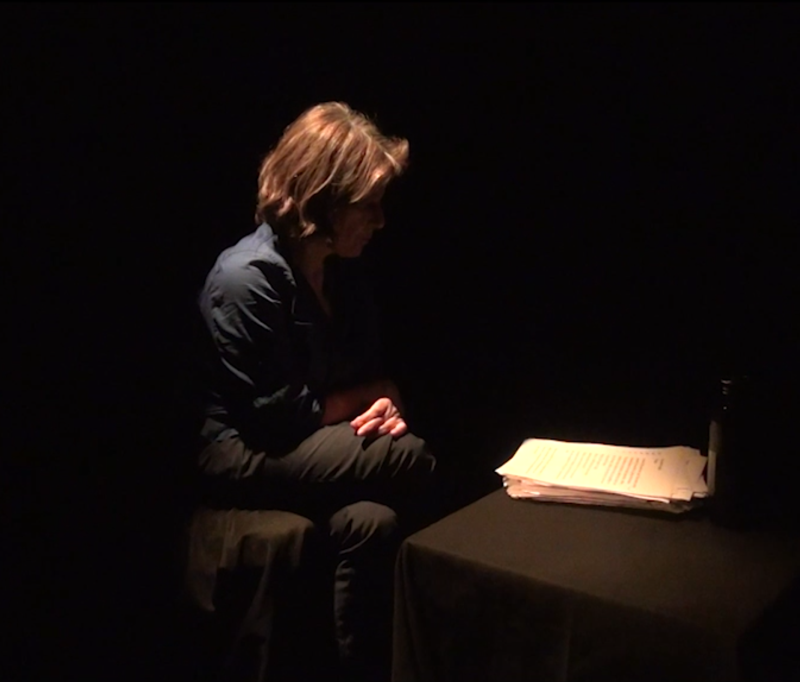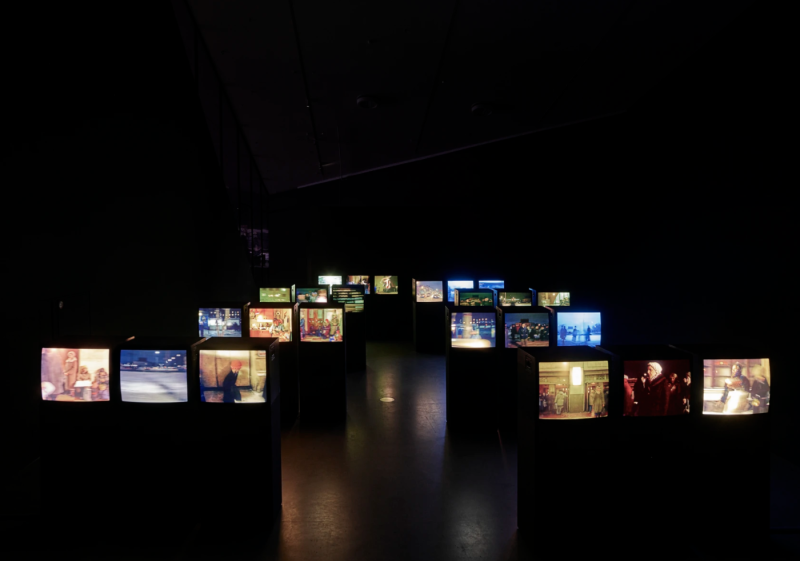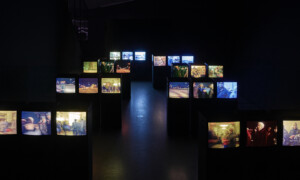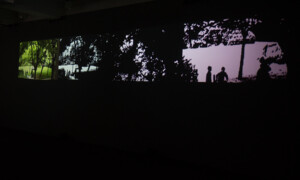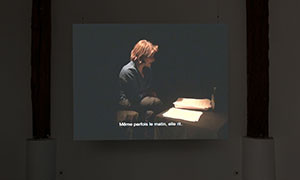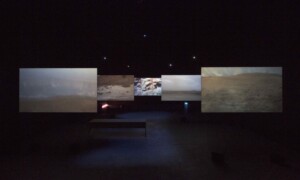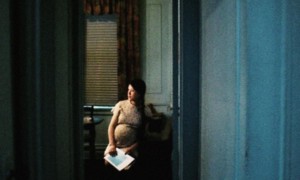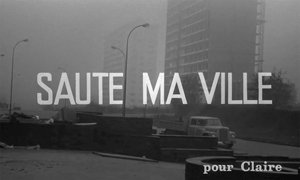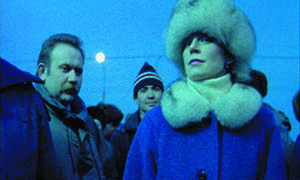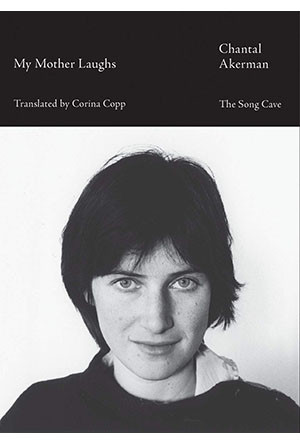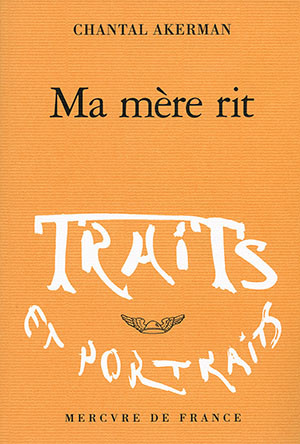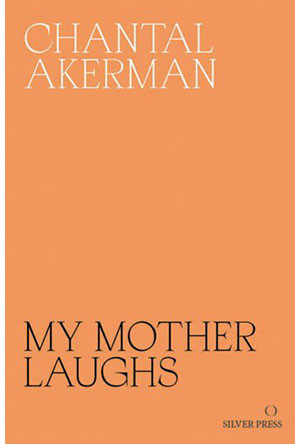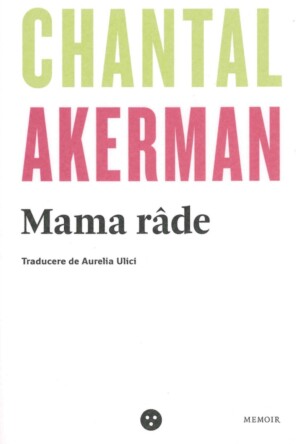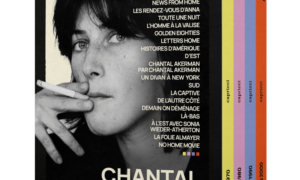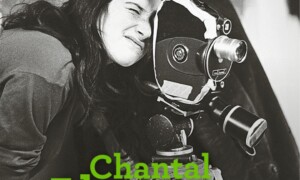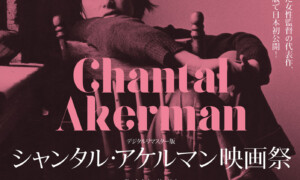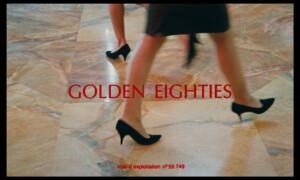Chantal Akerman (1950–2015) is regarded as one of the most important filmmakers of the late-20th century, having made a profound impact on feminist discourse within cinema, and within avant-garde film and video art at an international level.
Born in 1950 to Holocaust survivors from Poland, the generational trauma of this experience was a continued theme in Akerman’s work and, later on, she began to explore her own Jewish identity. After briefly attending the Belgian Institut National Supérieur des Arts du Spectacle et des Techniques de Diffusion, Akerman made her first film at age 18, Saute ma ville / Blow Up My Town, which premiered at the renowned Oberhausen short film festival in 1971.
Shortly thereafter, Akerman left Europe for New York to further her film career, where she began to frequent Anthology Film Archives, notably engaging with the work of Stan Brakhage, Jonas Mekas, Michael Snow, Andy Warhol, and so many more. Akerman went on to make over 40 films during her life time, and is considered to be one of the most influential European directors of her generation.
Today, follow along as we explore the intricacies of Chantal Akerman’s filmic work and the philosophies behind them.
WE ARE LISTENING…
To Chantal Akerman reading an excerpt from her final book, Ma mère rit / My Mother Laughs, which is included in her video installation “Maniac Summer,” titled “My Mother Laughs, Prelude.” The book is a touching memoir about family, life, and love. Surrounding the deterioration of her mother’s health along with her own mental health, Akerman blends her matter-of-fact writing style with family photographs and stills from her own films in order to better describe and speak toward the most tender of human elements.
WE ARE WATCHING…
A short film preview of Akerman’s exhibition, “Passages,” which was recently on view at the Eye Filmmuseum in Amsterdam. The exhibition featured eight of Akerman’s seminal film installations, including a 1995 large spatial installation on 25 monitors based on D’Est, which was originally made as a standalone film, as well as Now, Akerman’s final installation.
WE ARE READING…
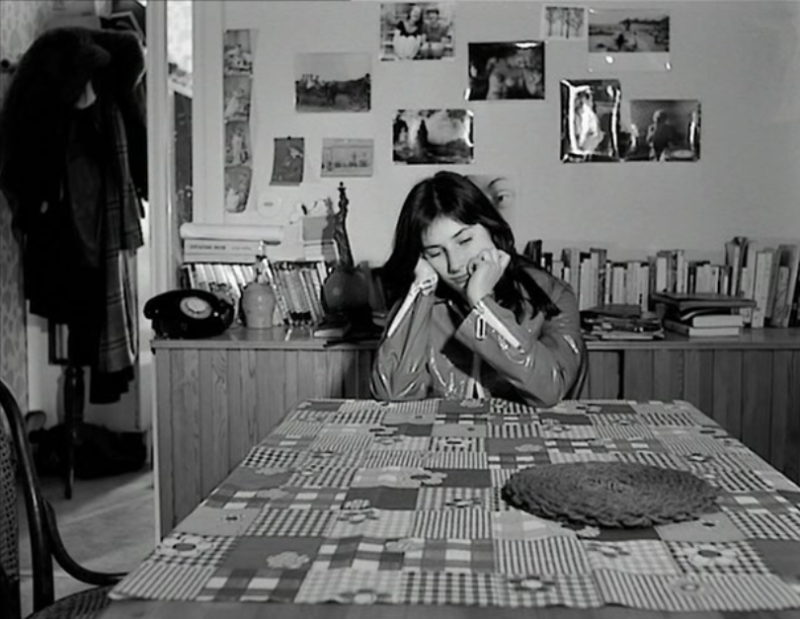
No Idolatry and Losing Everything that Made You a Slave, a long-form interview between Akerman and Élisabeth Lebovici, the celebrated French journalist, art historian, and critic. Lebovici and Akerman discuss Otherness as it relates to Akerman’s films, particularly through the lens of the barriers and frontiers that are so present throughout her entire body of work.

